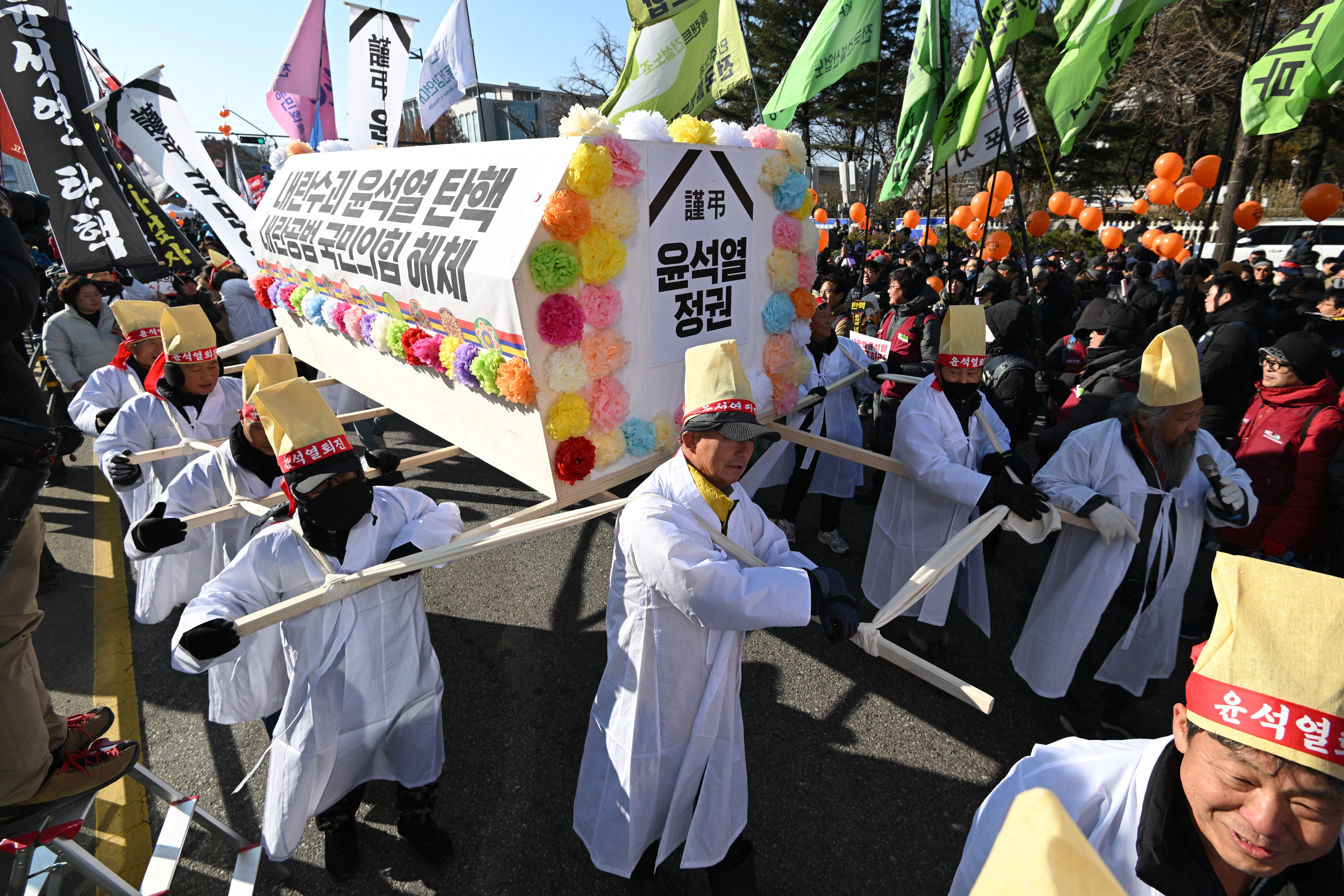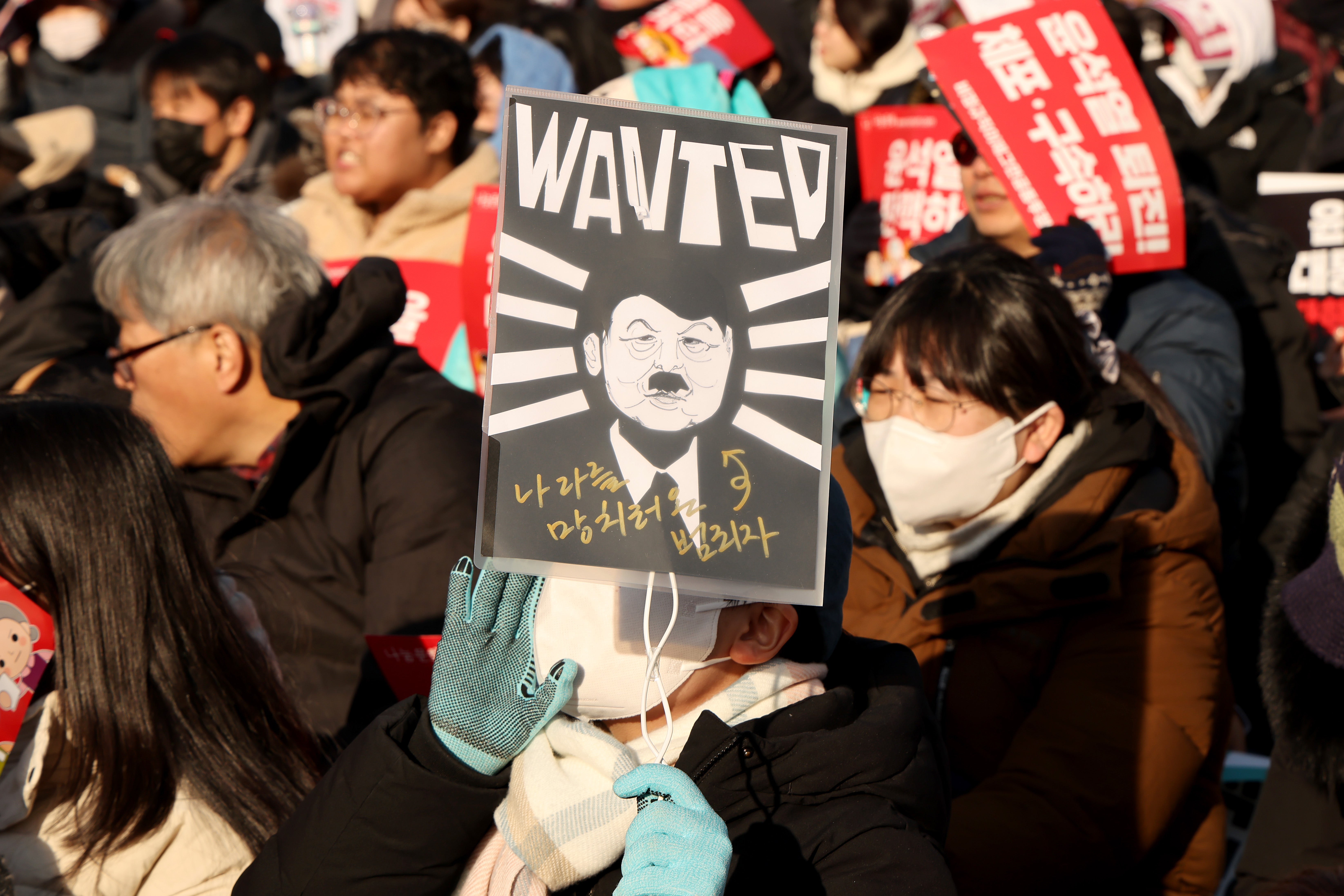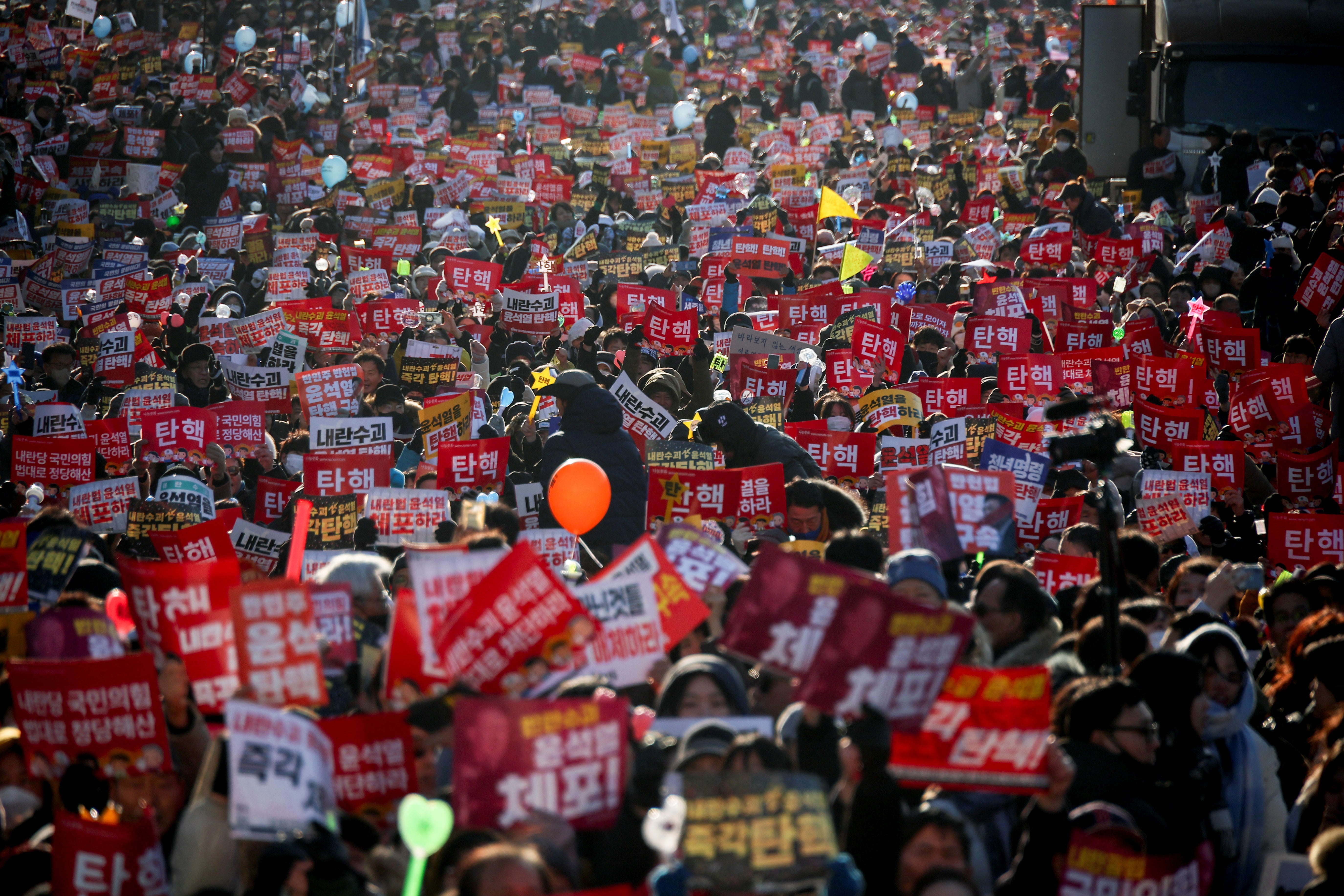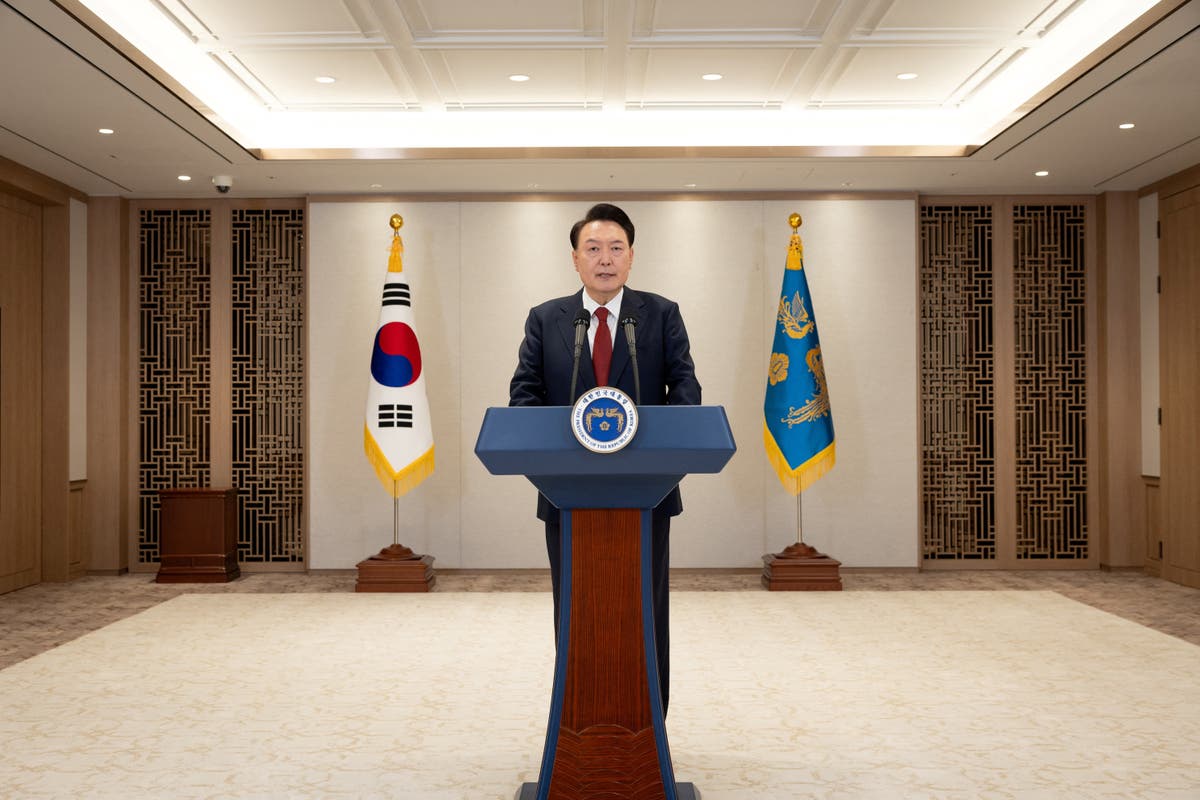South Korea’s parliament impeached president Yoon Suk Yeol on Saturday, voting to suspend him from official duties over his short-lived and controversial attempt last week to impose martial law in the country.
The National Assembly approved the motion with a 204-85 floor vote. Following the delivery of impeachment documents to both Mr Yoon and the Constitutional Court, his presidential powers and duties will be suspended.
The Constitutional Court has up to 180 days to decide whether to remove Mr Yoon from office or reinstate his authority. Should he be ousted, a national election will be required within 60 days to elect his successor.
South Korean prime minister Han Duk Soo said he would do his best to run the government stably after the impeachment of Mr Yoon.
“My heart is very heavy” Mr Han, who will become acting president as Mr Yoon’s presidential powers are suspended, told reporters after parliament approved the impeachment motion.
Last Saturday, Mr Yoon narrowly survived an impeachment vote after a majority of ruling party lawmakers chose to abstain. Public discontent has intensified in recent weeks, with protests growing larger and Mr Yoon’s approval rating plummeting.
For the past two weeks, tens of thousands of demonstrators have taken to the streets of Seoul every night, braving freezing temperatures to call for the president’s removal and arrest. Protesters, many of them waving K-pop light sticks, have rallied peacefully, chanting slogans, singing, and dancing. Smaller counter-rallies from Mr Yoon’s conservative supporters have also taken place, though these too have remained largely non-violent.


Mr Yoon’s martial law imposition – the first in South Korea in more than four decades – lasted just six hours, but it triggered massive political turmoil, halted diplomatic activities, and unsettled financial markets.
Following parliamentary resistance, Mr Yoon was forced to revoke the decree, which had seen hundreds of troops and police officers deployed to parliament in an attempt to obstruct the vote on the order. No significant violence occurred, though the political fallout has been severe.

Opposition parties and legal experts have accused Mr Yoon of rebellion, citing a legal provision that defines rebellion as actions intended to undermine the constitution by staging riots against the state’s established authorities. They argue that the president was legally barred from declaring martial law, except during wartime or other national emergencies, and that his actions violated the country’s constitution by attempting to suspend parliamentary functions.
The impeachment motion claims that Mr Yoon “committed rebellion that hurts peace on the Republic of Korea by staging a series of riots”. It accuses him of mobilising military and police forces in a manner that threatened the National Assembly and the public, with the martial law decree allegedly aimed at disturbing constitutional order.
In a fiery speech on Thursday, President Yoon rejected the rebellion charges, defending his actions as a necessary step for governance. He characterised his martial law decree as a warning to the opposition Democratic Party, accusing it of being a “monster” and “anti-state forces” responsible for undermining the government’s agenda.

“I will fight to the end to prevent the forces and criminal groups that have been responsible for paralysing the country’s government and disrupting the nation’s constitutional order from threatening the future of the Republic of Korea,” Mr Yoon declared.
Democratic Party leader Lee Jae Myung responded, labelling Mr Yoon’s remarks a “mad declaration of war” against the people of South Korea.

Mr Yoon remains under investigation, with law enforcement authorities looking into whether he and others involved in the martial law declaration may face charges of rebellion, abuse of power, and other criminal offences. If convicted, those found guilty of leading a rebellion in South Korea could face the death penalty or life imprisonment.
Additional reporting by agencies




